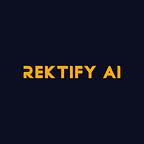Smart Contract Audits 101: What Risk Factors to Look For
Smart contracts are to blockchain what CPUs are to computers — the system’s brain. A computer can’t function without the central processing unit, CPU, because it verifies and processes data and instructions in the computer, likewise the blockchain.
“Smart contracts” are not contracts in the legal sense that we are accustomed to in the real-world. These programming structures are comprised of cryptographic code that enforce conditions. Smart contracts are computer programs deployed and stored on blockchains designed to self-execute when certain conditions are met. Since they exist on the blockchain rather than on a specific server, their code, execution logs, and function are distributed and fully transparent. The smart contract paradigm allows conditional transactions — akin to real-world contracts and escrow services — to be conducted without central controlling or clearing mechanisms [1].
So, what happens if the smart contract, the power source of many blockchains, is liable to faults, cracks, and loopholes?
The billion-dollar industry will be in jeopardy, as we have witnessed over the years, where projects built on major blockchain networks like Ethereum, Binance Smart Chain, Solana, Abritrum, Fantom, and others have lost millions of dollars to attacks.
Such attacks and exploits, like re-entrancy, time dependency, DDoS, etc., on smart contracts, can be averted through comprehensive smart contracts audits to correct faulty code and inconspicuous security vulnerabilities. Thus, securing the network, protocol, users’ funds, and establishing optimized blockchain ecosystems.
What are smart contract audits?
Smart contracts audit is the process of an in-depth examination of the code that underwrite the terms of a smart contract. The audit ensures that code is secure, optimized, and error-free. Smart contract audits are often done by independent smart contract auditors who detect and identify bugs, errors, and other security vulnerabilities of a project via bug bounties. However, the most emergent method to receive audits is through auditing firms.
The audits are significant because once the smart contracts are put on the mainnet, changing the code is irreversible. Now, imagine the security risk of having faulty code in a smart contract? Thus, the need for a thorough smart contract audit that’d enable smart contract developers to correct flaws before deploying smart contracts on the blockchain. However, smart contracts audits will vary slightly depending on the blockchain the code is based on [2].
Why are smart contracts audits significant?
Unlike traditional finance, the final word in DeFi is code. A platform is only as valuable and secure as its smart contract code and the quality of its team. There have been several notable hacks in the DeFi space, with estimated losses in the billions [3]. Also, fuelled by blockchain’s irreversibility, the need for extreme security checks to protect people’s investments is topmost. Some reasons for smart contract audits are:
- Improvement of security
- Enhancement of smart contract development
- Advisory
- Independent audits stop false results
- Prevents costly and irreversible errors
- It boosts the optimization and efficiency
- Enhances the credibility of emerging projects
Smart contract audits are beneficial for DApps, smart contract developers, users, and creators.
How to audit smart contracts
The audit ensures that smart contracts are free from access control and logic errors. It also verifies the code and programming language for over-engineering and other vulnerabilities. Smart contract audits can be done through automated or manual analysis.
Manual analysis
The manual audit requires a group of professional developers to test and scrutinize the smart contracts codes with a needle eye. This process is time-consuming and can be costly to hire experts. However, it’s the most thorough approach to smart auditing contracts. The manual analysis will detect obscure flaws otherwise overlooked.
Automatic analysis
The automatic audit uses software to detect the precise location of bugs, vulnerabilities, and errors in smart contract codes. Although it saves time and money, the audit is not thorough, and some loopholes and design difficulties may be undetected. Here are a few static code analysis tools used to detect vulnerabilities in smart contracts:
What risk factors to look out for
Quality smart contracts audits are done to prevent blockchain networks from common attacks as referenced in our Attack Playbook on GitHub:
Front-running
This attack happens when a miner pays high gas fees to prioritize its transactions over others while it takes advantage of an incoming opportunity. Front-running leads to an unfair market where anybody can bypass orders and rip others. Smart contract codes can be written to prevent malicious miners from manipulating orders.
Reentrancy attacks
This attack is vicious and internal within smart contracts. It happens when a maliciously written smart contract interacts with a victim’s smart contract. The malicious contract places a recursive function that continues to call the initial function.
For instance, if the first function is ‘pay Jamie $10,’ while this command is being processed and yet to complete, the malicious contract interrupts and calls the same function again and again and again until substantial funds are drained.
Timestamp dependence
The blockchain relies on miners to set time. When a transaction is completed on the blockchain, a new block is mined on a node, and the timestamp is recorded. Because there’s an allowance for time variance for adding new blocks, malicious miners can influence and exploit this vulnerability to their advantage.
Closing thought
Quality smart contract audits are essential to secure blockchain ecosystems, protect users’ funds and gain trust from investors.
Works Cited
- Moody’s Analytics Writers, “Block by Block: assessing risk in decentralized finance”, Moody’s Analytics, January 2022. [Online]. Available: https://www.moodysanalytics.com/articles/2021/block_by_block_assessing_risk_in_decentralized_finance
- CoinTelegraph writer, “Ethereum and Solana Smart Contract Audits”, CoinTelegraph, July 2022. [Online]. Available: https://www.google.com/amp/s/cointelegraph.com/explained/solana-and-ethereum-smart-contract-audits-explained/amp
- Moody’s Analytics Writers, “Block by Block: assessing risk in decentralized finance”, Moody’s Analytics, January 2022. [Online]. Available: https://www.moodysanalytics.com/articles/2021/block_by_block_assessing_risk_in_decentralized_finance
